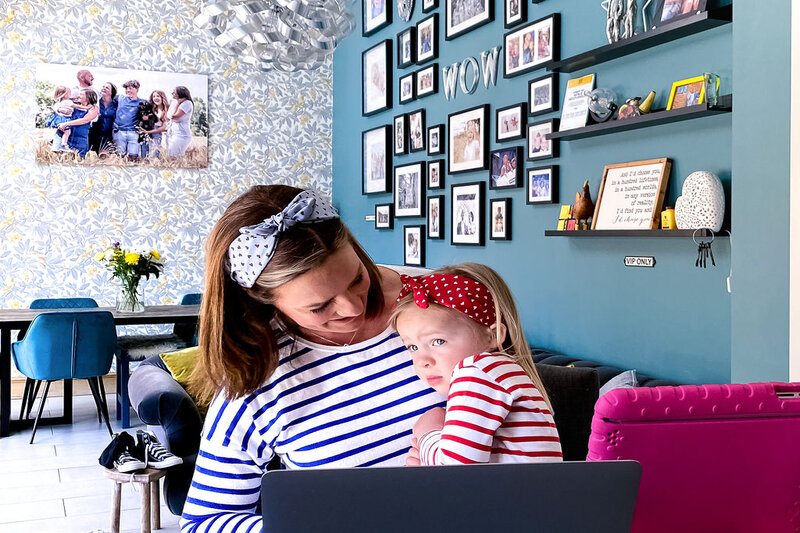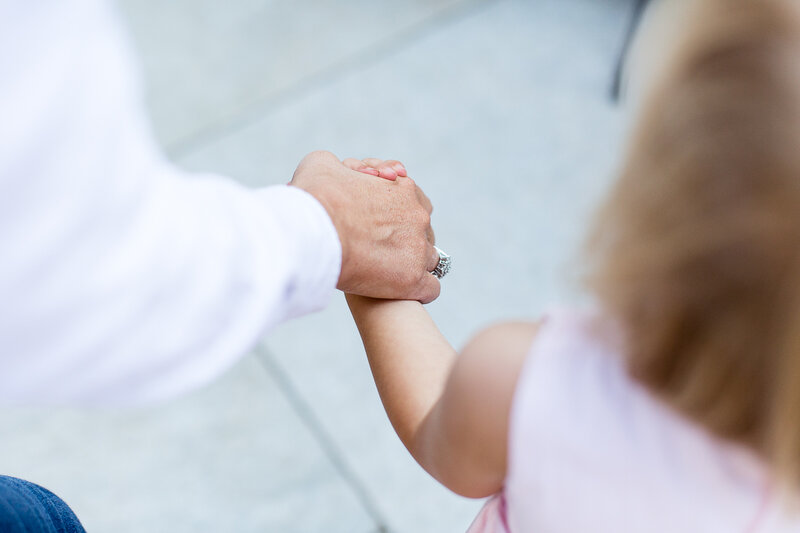Helping kids with anxiety during lockdown has become a big focus for many parents since Covid completely changed everyone’s lives.
The mental health of many has suffered during this time — so it’s extremely important as a parent to make sure you are supporting your kids in the best possible way in order to help them thrive as they move through this weird time.
We all need social interaction and connection, but children especially need it, and if they aren’t getting it this can affect so many aspects of their life.
I have seen how my kids have struggled during this time and the dips they have gone through, so that is why I felt sharing more info on this topic is much needed — even if it just helps one parent with deeper insight into how they can best support their child.
This article will take a look at what anxiety is, potential causes of, symptoms of and tips of how you can help support your kids who may feel anxious or low.
I am no expert on this subject and make no claim to be one.
This article is merely a resource founded on the information of professionals and my own insight as a parent. I will cite all the necessary references.
With that said, let’s dive right in.
Firstly, What Is Anxiety?

According to Young Minds, “anxiety is a feeling of worry or fear that is experienced as a combination of physical sensations, thoughts and feelings.”
Feeling anxious or worried sometimes as a child or young person is a natural part of the growing up journey.
At particular points in their life, like the first day of school, trying out for a sport or before writing an exam, it’s quite natural to feel some anxiety, but they should be able to soon calm down and feel better.
The problem occurs when a child feels all consumed by this feeling of anxiety and worry, they become stuck in it, overwhelmed by it or it becomes unmanageable and limits how they usually function and engage in everyday life.
If this level of stress and worry continues for a long period it can leave a child utterly exhausted, depleted and isolated.
If anxiety is something your child is struggling with, you can help them by giving emotional support, working on clear and practical approaches together and finding the best suited professional help if they require it.
A morning routine is a set of actions you perform in the morning, usually before your day’s main activity (like going to work), which makes you feel happy, healthy and focused for the day ahead.
What Can Cause Anxiety in Kids?
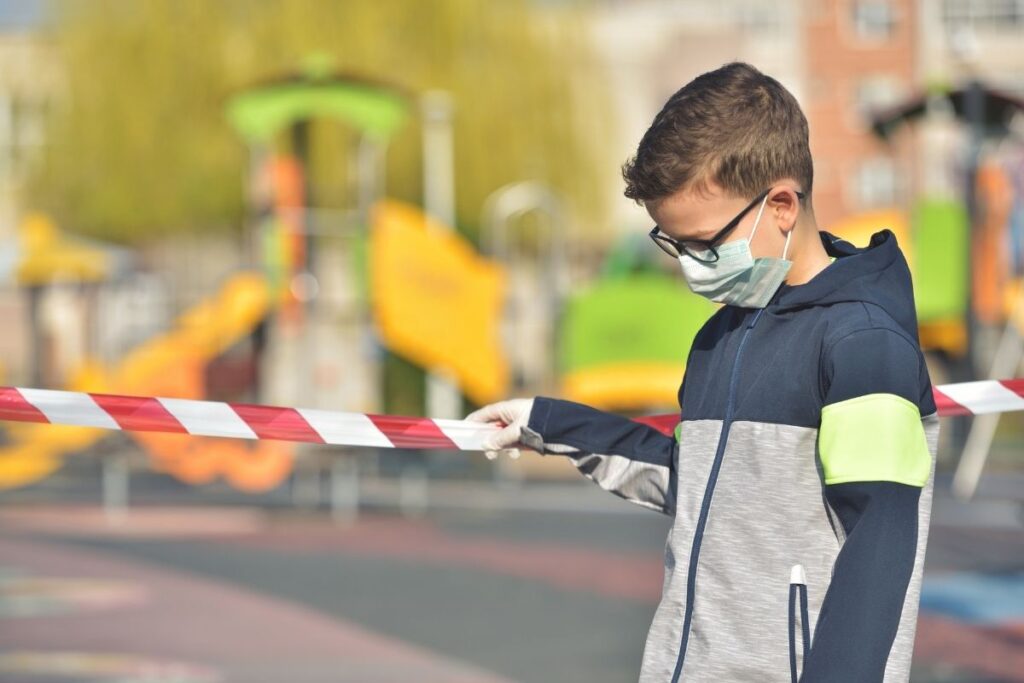
There are many varying reasons for kids to feel anxious, this is dependent on the individual and their circumstances.
The most notable reason currently for many young people would be Covid and lockdown and the complete disconnect this has ushered into their lives.
If we as adults have felt lonely and isolated, imagine how a child may feel. Not being able to go play with their friends or have sleepovers. The life of children and teens has completely changed.
This, as well as the following kinds of things, can make some kids feel more anxious:
- Experiencing big changes, hello Covid, or moving house or school
- Having responsibilities that are beyond their age and development, for example caring for other people in their family
- Being around someone who is struggling with their own mental health, such as a parent
- Struggling at school — feeling overwhelmed by work, exams or peer groups
- Experiencing family stress around things like living circumstances, money and debt
- Going through distressing or traumatic experiences in which they do not feel safe, such as being bullied or witnessing or experiencing abuse
Symptoms Of Anxiety According To Young Minds
Anxiety tends to affect a young person’s body, thoughts and feelings. They may also behave differently, including turning to certain coping behaviours to try to avoid or manage their anxiety.
This is by no means an exhaustive list, please always consult a healthcare professional for clarity. This does give a general overview of what to keep an eye out for.
Physical symptoms:
- panic attacks, which can include having a racing heart, breathing very quickly, sweating or shaking
- shallow or quick breathing, or feeling unable to breathe
- feeling sick
- dry mouth
- sweating more than usual
- tense muscles
- wobbly legs
- Irritable Bowel Syndrome (IBS), diarrhoea or needing to pee more than usual
- getting very hot
Thoughts and feelings:
- preoccupied by upsetting, scary or negative thoughts
- nervous, on edge, panicky or frightened
- overwhelmed or out of control
- full of dread or an impending sense of doom
- alert to noises, smells or sights
- worrying about being unable to cope with daily things like school, friendships and being in groups or social situations
- worrying so much that it is difficult to concentrate and/or sleep
Coping behaviours:
- withdrawing or isolating themselves – including not wanting to go to school, be in social or group situations, be away from parents or try new things
- repeating certain behaviours, actions or rituals (often called ‘obsessive compulsive behaviours’)
- eating more or less than usual
- self-harming
Doing something for yourself first thing will naturally make you more relaxed and feeling happier.

Top Tips For Helping An Anxious Child
1. Keep The Channels Of Communication As Open As Possible
Make an effort to talk with them about what’s going on.
Let them know that their feelings are valid and that it’s okay to feel whatever emotions they are moving through whether that’s scared, worried, angry, sad or something else.
When helping kids with anxiety, seek to understand — ask them what it feels like in their mind and body, and what things make them feel the way they’re feeling.
Avoid dismissing their worries as tempting as it is in order to reassure them. It’s more important to empathise with their experience and validate their feelings.
Read ‘Good Parenting Tips For Improving Your Parenting Skills’ here.
2. Make An Effort To Answer Your Child’s Questions And Reassure Them In An Age Appropriate Manner
You don’t have to know all the answers when helping kids with anxiety, just the act of talking things through can help them feel calmer and more at ease.
Free Download “10 Steps on How To Create A Dream Book”
& Visualize Your Dream Life Today!
This is a great activity to do with your kids which can help them shift from anxious thoughts to excitement for their dreams.
3. Encourage Your Child To Do The Things That Will Bring Them Joy And Make Them Feel Calmer
This will vary for each individual — it could include things like doing exercise or going for a walk, watching a favourite film, reading a favourite book, cooking or baking, talking to friends, or drawing or writing.
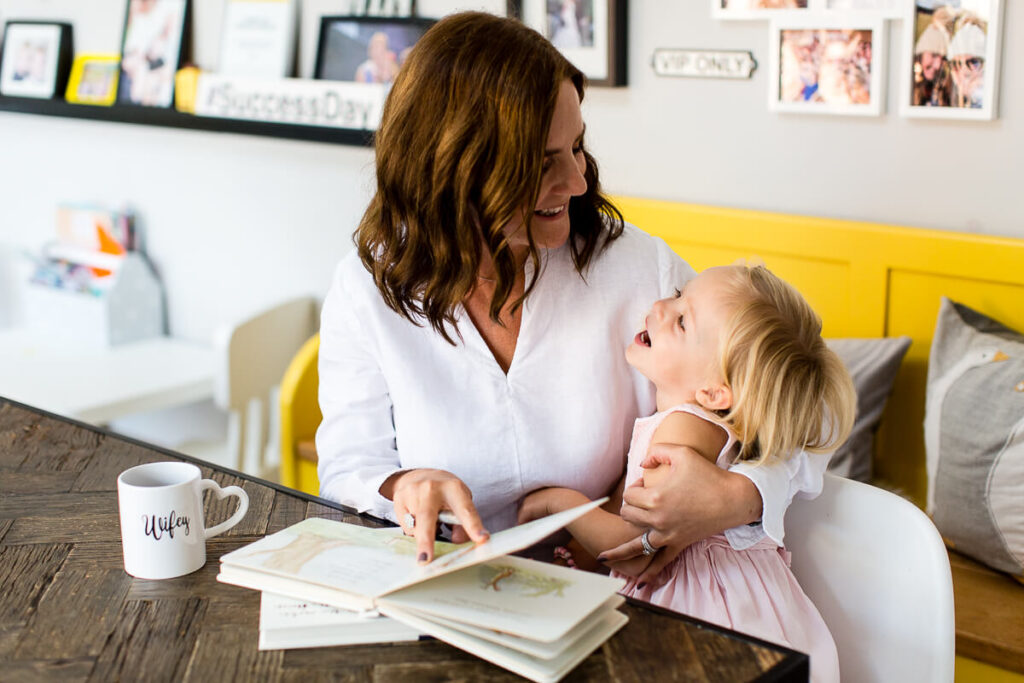
4. Stick To Keeping As Many Regular Routines As Possible In Order To Help Your Child Feel Safe And Secure.
This can include things like having regular times for going to bed, waking up, eating meals and doing hobbies — this is especially important during a lockdown and Covid times.
5. Count Your Blessings and Practise Gratitude
A simple yet profound way to help your child feel good is by bringing their attention to all the things they are grateful for.
With all the restrictions and big changes that lockdown has imposed on us, it’s easy to get caught up in the negativity.
It’s so important to remember to shift focus and look at the many positive things we have in our lives — food on the table, a roof over our heads, warm beds to sleep in, support of friends and family and the internet to keep us connected to our loved ones, to name a few.
A lovely way to remind not just your children but the whole family is to each say three things you’re grateful for at the end of the day.
Read ‘How to Cultivate an Attitude of Gratitude: For Mums Who Want To Feel Good’ here.
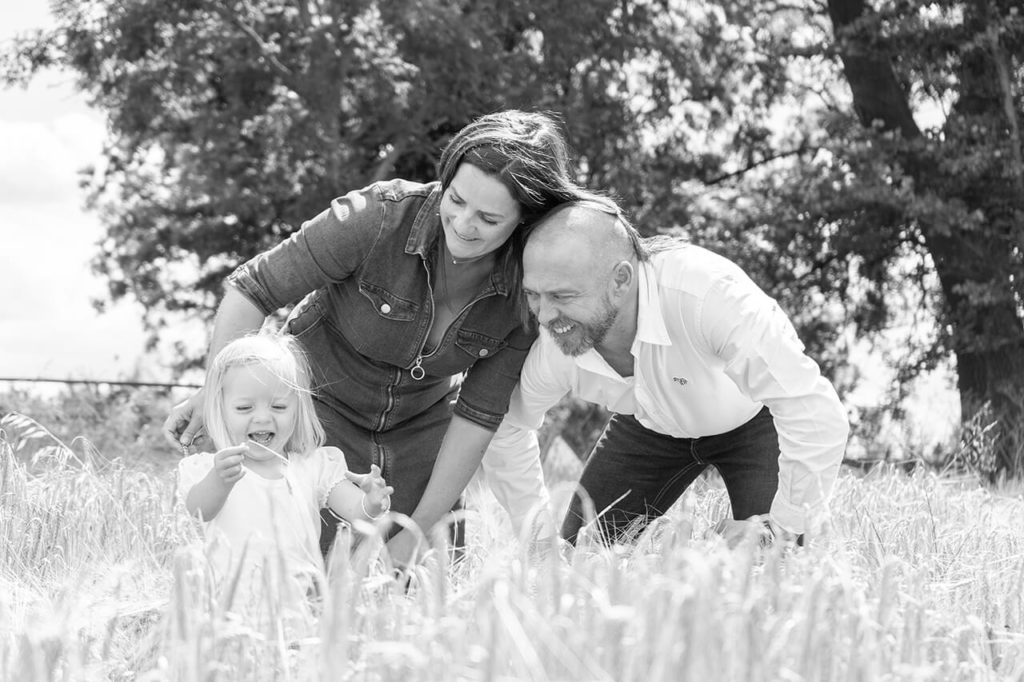
6. Read, Do Things Together
This is the time for honing skills and talents. Looking back how often did you say “I wish I had time to do X with my kids”.
Well now you do, so use this Covid time to stimulate your child’s interests. Ask them what they want to learn and read about.
Do this together as this will give you both a chance to feel connected and bond.
The main focus here is to be constructively occupied so that any anxious thoughts can be replaced with positive ones and alleviate any worried feelings and emotions.
7. Recognise Your Child’s Efforts
Acknowledging how well you have managed things so far is imperative and then doing the same for your child is important too.
You and your kids deserve a huge amount of credit for all you have traversed so far. We are living in strange times and we’ve all had to learn how to adapt — for some this is easier than for others.
Recognise your child’s efforts to adjust to the uncertainty, celebrate even the smallest of achievements.
Children rely mostly on us to validate their efforts. They have moved from lives that are scheduled with classes, play dates and activities to confinement at home. This in itself deserves massive praise.
Let them know how proud you are of them and how well they are handling everything. Support and encourage them in staying connected regularly with their friends and family digitally.

8. Allow Them to Worry
It’s so easy to just say to your child, “you don’t need to worry about that”, but ultimately telling them not to worry won’t magically stop them from worrying so you have to be able to give them that space to share what’s on their heart.
A great way to facilitate this in doses that are more controlled is by creating a daily ritual called “Worry Time” that lasts 10 to 15 minutes.
During this ritual encourage your children to release all their worries in writing. Make this activity fun by having a worry box that they can decorate.
Once they are done writing down their worries, they can place them in the box and then say good-bye to the worries for the day.
9. Help Them Work Through a Checklist
A great way to help kids with anxiety is to have a checklist that they can refer to which will give them a step-by-step method to calm down.
Work with them in figuring out what best helps them feel calmer and more at peace.
What do you want them to do when they first feel anxiety coming on? If breathing helps them, then the first step is to pause and breathe. Next, they can assess the situation.
Lastly, you can create a hard copy checklist for your child to refer to when they feel anxious.
10. Be A Good Role Model On How To Handle Anxiety
Helping kids with anxiety can also be done by letting them see how you cope with anxiety.
Kids are incredibly perceptive and they model so much of what we do.
It’s not about pretending that you aren’t also facing anxiety and overwhelm, it’s more about what you are doing to manage it (in healthy ways) that matters — lead by example.
Read ‘Being a Role Model For Your Kids: 7 Things Network Marketing Taught Me’ here.
11. Focus On The Breath, Together
When helping kids with anxiety get them to take care of their nervous system by focusing on their breath.
You can count slowly to five as you breathe in, and then five as you breathe out. If this is too much, try starting with shorter counts.
If they feel comfortable with this, gradually encourage your child to breathe out for one or two counts longer than they breathe in, as this can help their whole body relax.

12. Give Them Physical Reassurance
Sometimes the best way to soothe a child is to sit with them and offer calm physical reassurance.
Having you close by, holding your hand or having a cuddle can do wonders for them.
Read ‘How To Find Quality Home Childcare For Your Children’ here.
13. Ask Them To Think Of A Safe And Relaxing Place Or Person In Their Mind
Do this with your child when they are feeling calm. It could be their bedroom, a grandparent’s house, a favourite place in nature etc.
Sometimes it may even help to get them to keep a special memento on them of a relaxing place, like a seashell or pebble, which can trigger a feeling of calmness.

14. Try Relaxing Activities
When helping kids with anxiety encourage them to try activities that will help them to relax, such as mindfulness, yoga or meditation.
Teenagers might like to use a mindfulness or meditation app such as Headspace or Calm.
It’s important that they find what works for them, you can only make suggestions.
15. Seek Professional Help If Needed
If nothing seems to be working and you’re worried about your child’s mental health then it’s time to seek professional help.
Refer here for resources on who to contact.
Sources:
https://www.psycom.net/help-kids-with-anxiety
https://gozen.com/9-things-every-parent-with-an-anxious-child-should-try/
https://childmind.org/article/what-to-do-and-not-do-when-children-are-anxious/
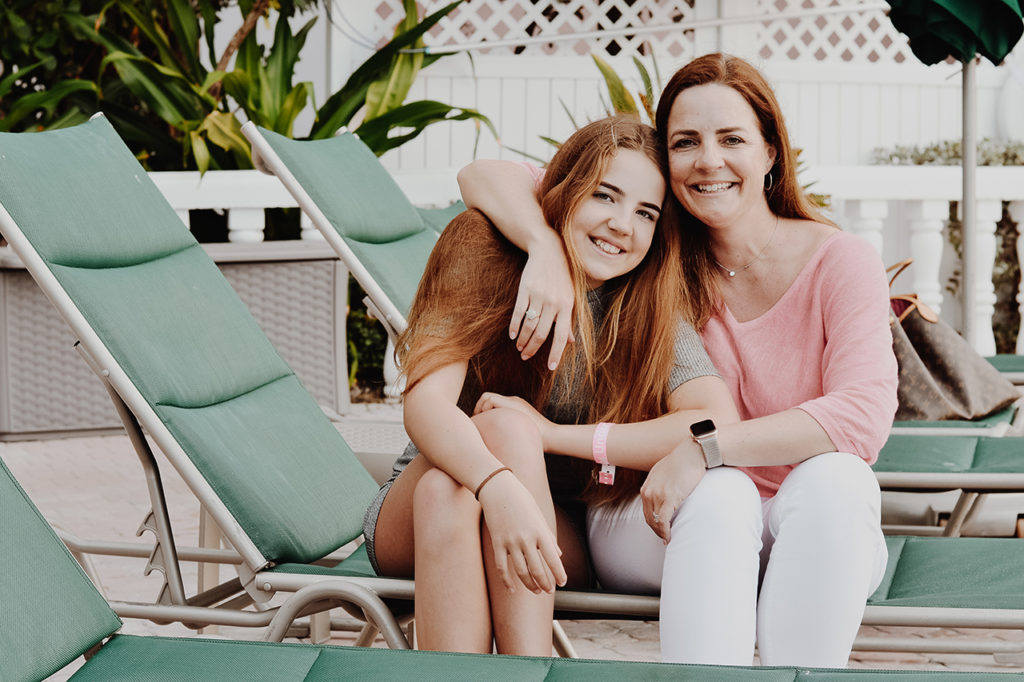
Here’s To Helping Our Kids Thrive During These Times
It’s no surprise that there has been such a rapid decline in mental health since the pandemic hit.
What we have to do now is help support our kids as best we can in order for them to emerge from this time stronger for it.
Make sure you are paying close attention to how your child is doing. If they say “I’m fine” don’t just take that at face value, dig deeper and find out how they are really doing.
We are all doing our best to figure things out, so trust that you are doing the absolute best you can, especially under such crazy circumstances. And remember to make your own mental health a priority!
I do hope this guide served you. Please feel free to share in the comments below and ask me any questions.
Please click the social icons to share this with your network and help inspire them to action today!
With love,
Nat
Free Download “Network Marketing: The Stay At Home Mums Guide To Making Money Online






